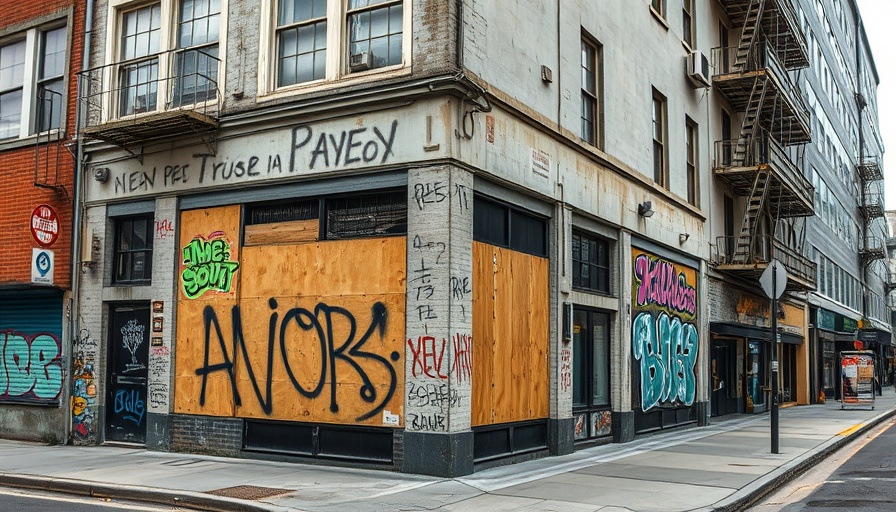
Manny's Café: A Microcosm of San Francisco's Heated Political Climate
On the evening of June 10, 2025, Manny's Café, a local gathering spot on Valencia and 16th streets in San Francisco, became a focal point of tension during an anti-immigration enforcement protest organized in response to recent raids by U.S. Immigration and Customs Enforcement (ICE). The café's Jewish owner, Manny Yekutiel, faced vandalism as protestors scrawled hateful slogans on its walls, leading to a troubling incident that ignites questions about community tensions and public safety in the Bay Area.
Outrage and Support: The Aftermath of Vandalism
As the protest, which attracted thousands, wound through the Mission District, parts of it veered off into violent expressions. Vandalism marred Manny's café as protestors defaced its windows with aggressive graffiti, including slogans like “Fuck Manny” and “The only good settler is a dead 1.” This not only targeted Yekutiel personally, but also echoed a larger narrative about displacement and cultural clashes in rapidly gentrifying neighborhoods.
Yekutiel responded to the incident with grace, saying he was overwhelmed but also supported by the community. San Francisco Mayor Daniel Lurie visited the café the following morning to express condemnation of the acts, reaffirming that while protests can be powerful, vandalism against local businesses is unacceptable. Lurie’s sentiments reflect a growing frustration among residents at the intersection of activism and property rights, raising questions about how cities can balance public demonstrations with the protection of community spaces.
A Balanced Perspective on Activism
Many in the Mission District have voiced their support for the protest's cause—opposing ICE's aggressive enforcement actions. The area has seen a substantial transformation over the past decade, with rising rents driving out long-time residents and crafting a cultural shift that many feel is disenfranchising the community. Nevertheless, Yekutiel’s experience sheds light on the complicated nature of activism: while the movement seeks to confront systemic injustices, the methods of expression cannot undermine local businesses that often serve as anchors in their neighborhoods.
Cultural Clashes and Community Resilience
This incident at Manny's café is reflective of broader cultural tensions in San Francisco between established local businesses and the activist community. With the rise in cost of living and increasing property values, the café has experienced its share of critiques as a symbol of gentrification. However, Yekutiel has actively participated in local initiatives, such as the Civic Joy Fund, aimed at uplifting marginalized voices within the community, showcasing his commitment to the area's socio-political landscape.
Future Implications for Local Businesses
As communities grapple with increasing polarization, the implications for local businesses like Manny's are significant. This incident may serve as a wake-up call about the need for more constructive dialogue between activists, businesses, and local government. Public safety concerns, especially surrounding protests, will likely lead to more stringent policies about maintaining peace in future demonstrations.
Moreover, the interaction of local businesses with the surrounding community highlights the importance of maintaining a safe space for all voices while fostering an inclusive environment. The tragedies that ensued at Manny's café ignite discussions about how communities can provide support to local entrepreneurs while remaining firmly rooted in their activist principles.
Manny Yekutiel's story is a reminder of the complexities that define San Francisco today—a city caught between the fierce advocacy for social justice and the necessity of supporting its local economy.
 Add Row
Add Row  Add
Add 




 Add Row
Add Row  Add
Add 

Write A Comment